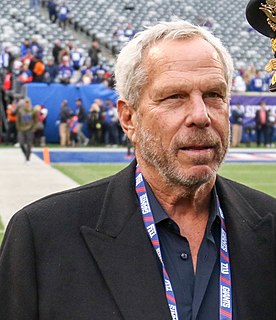A Quote by Tom Selleck
If you buy an expensive thing and you never use it, I don't think there's a point to it.
Related Quotes
Money is very difficult to think about. So, we think about money as the opportunity cost of money. So, we at some point went to a Toyota dealership and we asked people, what will you not be able to do in the future if you bought this Toyota? Now, you would expect people to have an answer. But people were kind of shocked by the question. They never thought about it before. So, the most we got was people said, "Well, if I can't buy this Toyota, if I buy this Toyota, I can't buy a Honda." What is this thing? What is this value of price? Very hard to think about it.
Price point is always important for mass market commodities. Look at the iPhone. It's expensive. But I think it is going to sell. It does something that people really want to do. People want to share it. It's an emotional thing that goes beyond the price point. It has emotional power. You are connected to it.
I would imagine, a very large percentage of people who get something for art and they do something else, and they have some excess resources. And they trade those resources with artists whose work makes them feel good, or feel better, or question. And the artist, if they're smart, they use it to buy the most expensive thing in the world: time to make more. The more that come, the better it is for these people, their children, the people they care about, fills the society with a real constant thing.
A technology becomes truly disruptive when it drives the marginal cost of something that used to be scarce and expensive to approach zero. Thus, it used to be to deploy software at scale, you had to fund a data center, buy a set of servers, storage, and networking gear, build an in-house IT management capability, and buy an expensive stack of enabling software before you could even get started. Now you can get all that from Amazon or Microsoft on a pay-as-you-grow model.




































